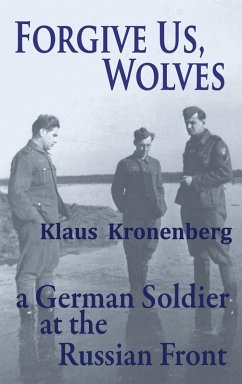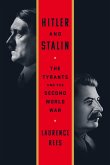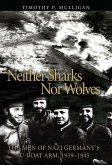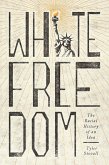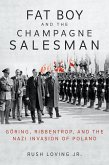At the front line, I was in charge of little more than the horses, as our artillery barrages secured the rapid advance of the Germany Army. But when large numbers of Russian soldiers surrendered, I was recruited as a sentry in a makeshift prisoner-of-war camp where provisions were lacking and our guns served as fences. There, under desperate circumstances, I lost my innocence as I took the lives of several Russian prisoners with my carbine.
Our advance slowed with the approaching Russian winter. Rain turned the roads to mud, until the temperature plummeted and our route turned to ice. We reached the outskirts of Moscow, tired and hungry, only to be turned back by bitter cold, lack of provisions, and collapse of the German lines. At night, unnerved by the eerie howling of wolves, I realized that we Germans could not solve the problems of Russia.
I survived the eastern front by taking my own course in the chaos of war. I escaped the devastating retreat from Moscow with the help and kindness of Russian peasants, a yellow medical tag for my frostbite, and a primitive train taking wounded men back to Warsaw. In the dark isolation of a crowded train car, memories flooded back of the rise to power of the Führer, of my love for family, church, and culture, and the forces that brought the Germans to war. But what could I tell my family and friends? I knew the Nazi lies about the Russian front. The home front wasn't prepared for the horrific truth. I decided to continue the deception.
Returning to the front, I was assigned to a motorized artillery unit to the south, along the shores of the Black Sea and foothills of the Caucasus Mountains. Here, in the midst of artillery barrages and long standoffs with the Russian lines, I escaped to my own inner world, reciting literature and discussing the arts with newfound friends. We were enchanted by the beauty of this land, the people, and the villages that we would ultimately destroy.
Late in the war, an order arrived for soldiers at the front with physics backgrounds to return to Germany to complete their degrees. Assuming that this was a call to work on atomic wonder weapons, I was given a year-long furlough to attend the university in Göttingen. As Russian forces surrounded the German Army in Odessa, I slipped past guards at the airport to board a plane that took me home. The peaceful university setting of 1944, far from the battles in the Ukraine, saved my life, but it did little for atomic research or the war effort.
Having finished my physics degree, I was sent back to the front, now just east of the Austrian border. When news of Hitler's death reached the Army, our unit raced west, away from the Russians and toward the American lines. Held captive in the pleasant open fields of a prisoner-of-war camp, we came to like the Americans.
In post-war Göttingen, faculty and students attempted to heal the wounds of the Third Reich and find a new path forward. Just as the war between Germany and Russia had ended, the Cold War began, fueled by the very misconceptions we had held about the Soviet Union and the Russian people.
Dieser Download kann aus rechtlichen Gründen nur mit Rechnungsadresse in A, B, CY, CZ, D, DK, EW, E, FIN, F, GR, H, IRL, I, LT, L, LR, M, NL, PL, P, R, S, SLO, SK ausgeliefert werden.

